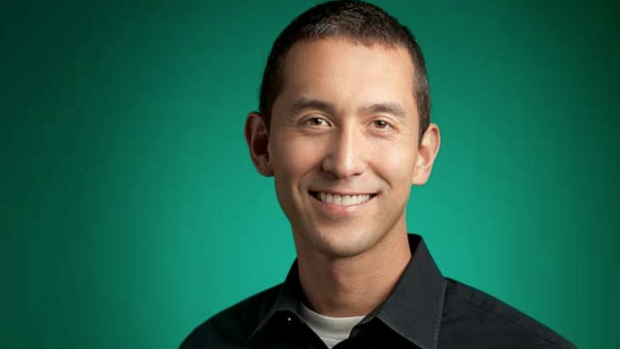

Hiroshi Lockheimer is responsible for one of the world’s most widely used technologies.
Google’s Android operating system runs on almost 1.5 billion devices, including four in every five smartphones as well as tablets, smartwatches, cars and televisions.
Eleven years ago, Google bought Android for around US$50m (NZ$70m) – one of the bargains of the century – and by giving the software away for free to manufacturers, the company has ensured its future as computing moves from the desktop computer to mobile phones.
But Android’s success has not been without its challenges.
Google is in the middle of a tense stand-off with the European Commission, which accuses the company of abusing a monopoly over smartphone manufacturers to give its other services a leg up.
Android’s sprawl has also made it difficult to keep handsets up to date, opening a door to hackers, and many Android manufacturers have struggled to turn a profit.
Earlier this year, Google released a phone of its own, a challenge to the iPhone but also to its partners such as Samsung, LG and HTC.
The Google Pixel device will receive software updates and new Google features, such as its artificial intelligence “Assistant”, before other phones.
Lockheimer recently answered questions about the current state of Android.
Google is traditionally seen as an internet company, but has now branched into hardware, launching its own phone after several years of relying on manufacturers to promote Android. Why have you done it and how do you keep your partners happy?
A lot of people don’t realise this, but Google has been doing consumer electronics for a long time now. The Pixel probably feels like a big step because it’s a phone and it’s Google-branded, but we already have the Chromecast [Google’s internet TV device], and there are 25m to 30m Chromecast devices in the world today. There are other types of hardware that Google has been doing for years, like Google Glass, routers and so on, so we have been in the hardware business for a while now.
We decided to consolidate that under one person [Rick Osterloh, a former Motorola executive who joined Google this year]. It’s a different team [within Google] and from my perspective in charge of Android, that team is just another manufacturer, like Samsung or LG. We treat all of them fairly. It doesn’t feel like a balancing act, it’s an open ecosystem where manufacturers can choose what they want to do.
Cybersecurity has been seen as a problem because of Android’s fragmentation. Unlike Apple, which runs both its phones and software, Android runs on thousands of different handsets from different companies. Many devices are running software that is several years old and it often takes months for security patches to be released. What are you doing about it?
These are very important topics. Stagefright [a bug found last year that allowed hackers to infiltrate an Android phone just by sending a text message] was a wake-up call for a lot of manufacturers.
We’ve started doing monthly security patches for our phones, and share them with our manufacturing partners, but because Android is open we don’t control all the devices out there: in fact that’s kind of the point of Android.
So it’s really up to them, we’re doing everything we can to make it as easy as possible for them, we work with the whole industry to educate them on security. I think it’s improving, and there’s a lot of things we do, such as inspect apps and disable them if they are malicious.
The European Commission has accused Google of abusing Android’s monopoly market share to promote its other services such as search and its Chrome web browser, and it could result in a fine worth billions. Where do you see the investigation going?
In terms of how we’re going to respond, that’s something we’re still working through and I’m not in a position to comment on that. But I do think it’s really important to highlight the amount of choice that Android has generated for the industry at large.
The idea behind Android was to generate choice, choice for consumers, for manufacturers and developers. It makes it easier for app developers to write an application once and have it run on as many devices as possible, that’s an important point and it’s a point that we continue to make publicly, but also with the Commission, to educate them on the ideas behind Android and what we’re trying to accomplish.
We think there’s already a lot of choice, for instance if you buy a Samsung phone or an LG phone it often comes with multiple browsers. If you’re using a Samsung device, it’s up to you whether you want to use the Samsung browser or the Chrome browser, or if you don’t like either of those browsers you can download any other browser, so we already think there’s a lot of choice and it is working as intended.
Android runs on most of the phones in China, but Google’s services, like those of many internet companies, aren’t available there so you don’t make any money from it. What are your plans in China?
While Google’s consumer services are not available in China today, we do work with many of the Chinese manufacturers.
There’s a lot of confusion about the state of Android in China [the country has been seen as a wasteland for Google due to manufacturers creating “forked” versions of Android that differ from those in the rest of the world]. People say Android is forked in China and I don’t think that’s accurate, it’s just that there are no Google services such as [the app store] Google Play.
A lot of the development in China is being used outside of China, so we’ve made it possible for Chinese developers to publish their apps elsewhere. That’s one step we’ve taken and we’re exploring other steps, but that’s a bigger topic for the company and the market in general.
[Source:-Stuff]
